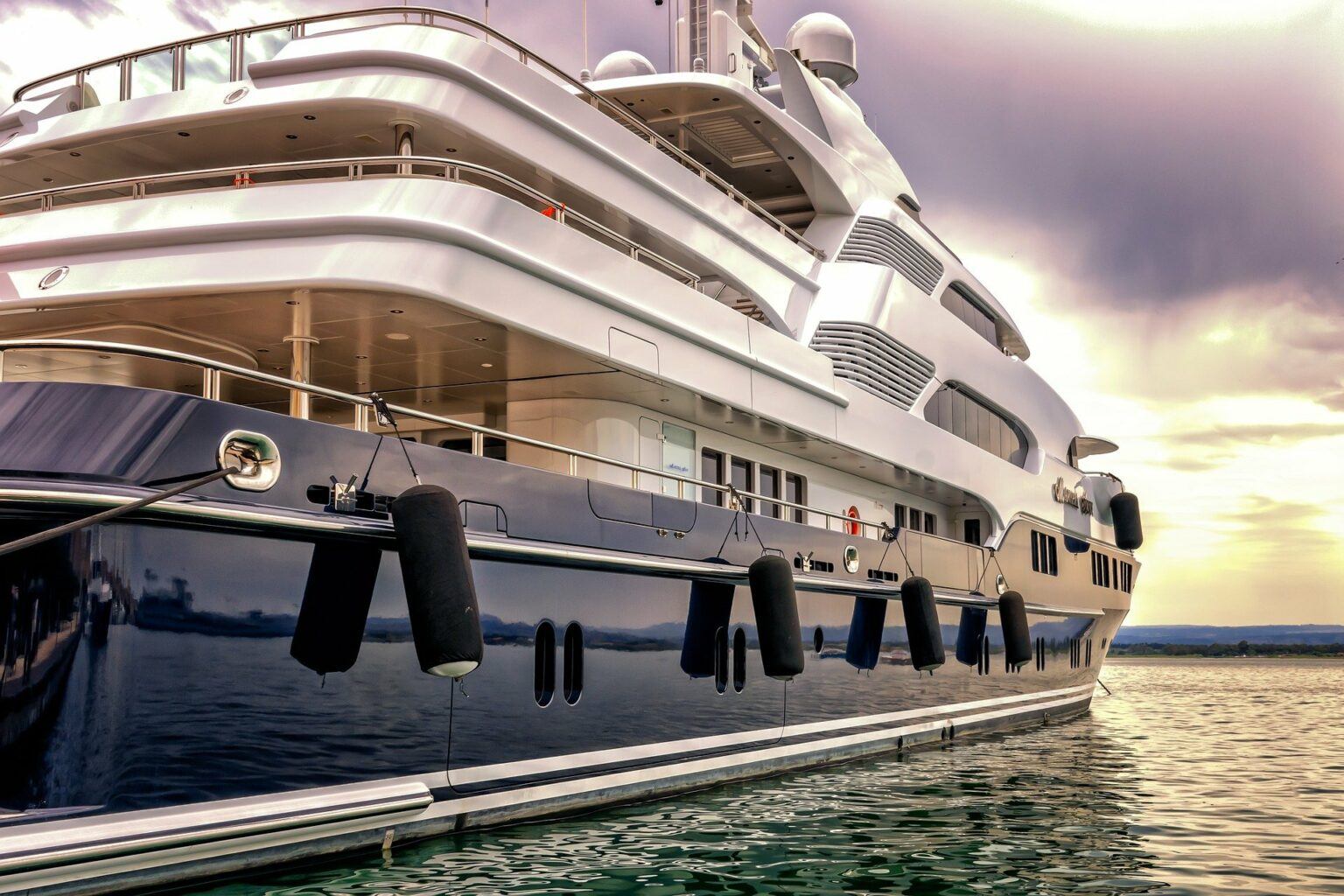The captain of a yacht is tasked with the safety and operation of the yacht. In this way, the position can range from being the CEO over the crew (thus taking full responsibility for the crew), the budget, the guests, and the many sectors of the ship’s operation. Every captain has to begin somewhere. Some people go into sailing for a season, while for others, it becomes a lifetime passion. It’s easy to see why, with the opportunity for travel, fair pay, rotation, and a life at sea.
What does a superyacht captain do?
The driving of the yacht is only a small part of what a captain’s job entails. The captain acts as the CEO of the yacht, hiring and managing all the crew, planning out journeys around the guest’s and owner’s expectations. The captain deals with the maintenance, repairing, sailing costs and making sure the vessel follows all port, international and flag state rules and legislations – this is done while also providing top quality service and safety.
Therefore, the ship’s captain must be a leader and navigator and be the chief problem solver. On smaller yachts, the captain has to be versatile and adapt to all roles due to the lack of a large crew. However, on a larger yacht, the captain takes on mostly duties related to the administrative area of running the vessel. In this way, the captain needs to be the chief problem solver, maintenance officer, human resources manager, and accountant for the vessel.
What experience is needed to become a superyacht captain?
The captain of a superyacht would have to have extensive maritime experience and training. The minimum requirements for a yacht captain position are:
- All seafaring certificates up to date: STCW (Standards of Training, Certification and Watchkeeping for seafarers), Seafarers medical certificate etc.
- 5+ years experience as the captain of a large yacht
- 3-5 years experience as chief mate
- Tonnage license depending on the yachts tonnage
- Good management skills
- Problem-solving skills
What personality traits are needed to be a captain?
A captain of a yacht is a charismatic leader who needs to have excellent people skills. Therefore, the captain has to be able to build relationships of trust and respect from clients, the crew, the management team, suppliers, and the owner of the vessel.
How to get started?
With all this being said, it can seem daunting to become a superyacht captain, but every journey has a humble starting point. As you develop your career in the deck department, you will have to invest in further qualifications. The first major hurdle is the RYA Yachtmaster, part of the Yachtmaster scheme outlined below. As discussed in the following section, this is a prerequisite for overcoming your second major hurdle – the Officer Of the Watch.
RYA Yachtmaster Scheme Day Skipper Practical
Completing the 5-day Day Skipper practical course, in addition to the Day Skipper theory course, enables you to work towards obtaining a Deck Rating Certificate.
Yachtmaster/Coastal Skipper Theory
This theory course looks at more advanced forms of navigation and seamanship and lays the foundation for the navigation taught at the Officer Of the Watch level. It is an intensive 7-day course that culminates in an exam and a formal RYA certificate.
Yachtmaster/Coastal Skipper Practical
To be eligible to take the Yachtmaster practical exam, you must log (routinely filling in a logbook) a minimum amount of sea time of 50 days, of which 5 days are as a skipper, log 2500nm, and complete 5 passages over 60nm (2 at night and 2 as a skipper).
MCA Deck Rating Certificate
The Yacht Deck Rating Certificate is the first MCA career qualification that counts towards the minimum manning document.
If you hold an RYA Dayskipper qualification, you can obtain one after completing 2 months of sea service time on a vessel greater than 15 meters in length. If you do not hold an RYA Dayskipper qualification, 6 months of sea service time is required, in addition to onboard training and the completion of a training record book.
If you’re not sure whether being a superyacht captain is for you, there are also other options. Super Yachting South Africa has courses to provide you with the essential yacht qualifications required to work on a seafaring vessel, such as the STCW 2010 (the year the STCW was last amended) course and the SYSA Deckhand Course. SYSA also provides advanced courses as your seafaring career progresses, such as the AEC (MCA Approved Engine Couse), which deals with the engineering part of maintaining the superyacht.
The world of super yachting is continually evolving, thus the industry is adapting to new influences, which ultimately lead to captains needing to adapt and gain a more versatile set of skills. This provides captains with the knowledge and qualifications which can expand into future opportunities in a multitude of fields.

